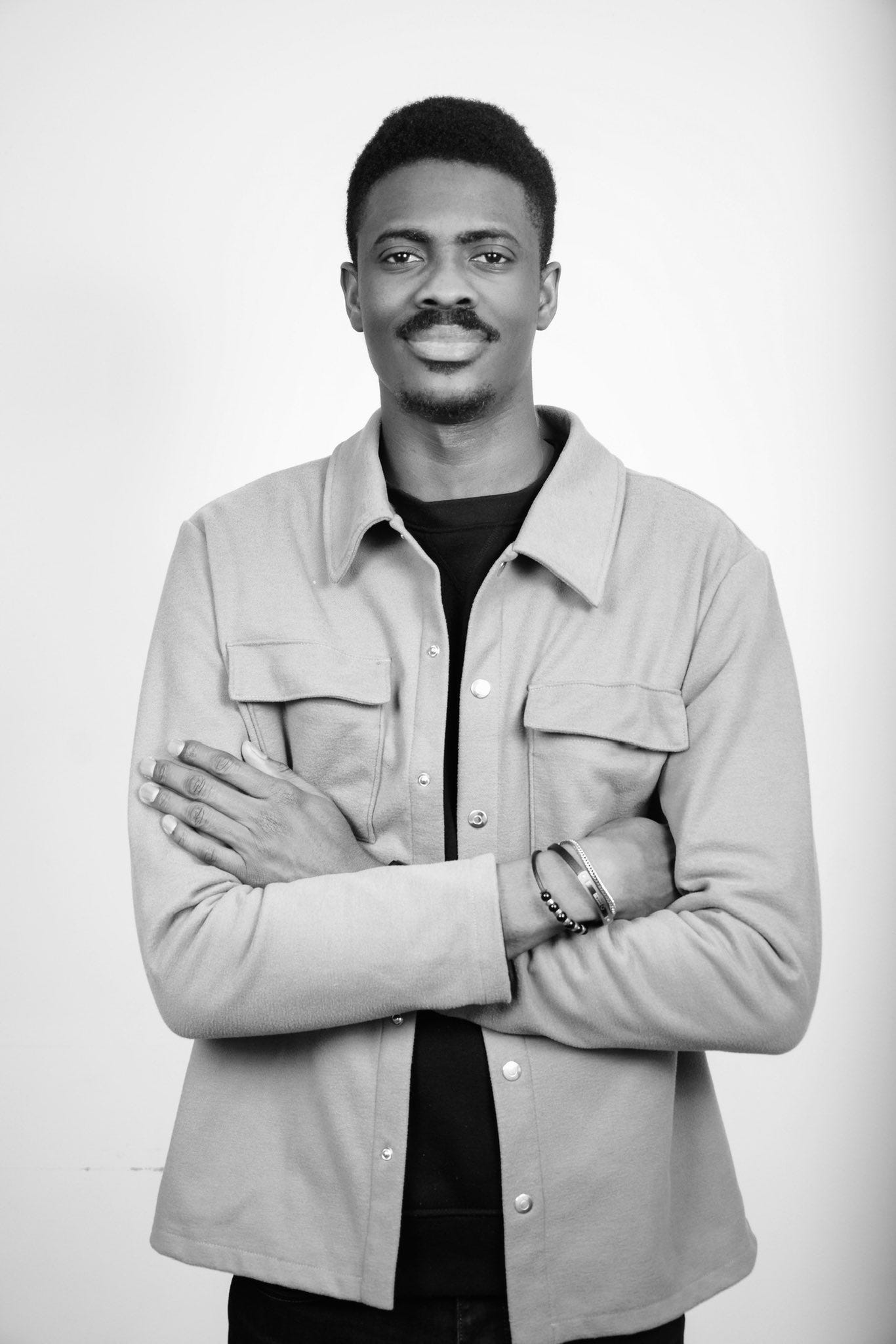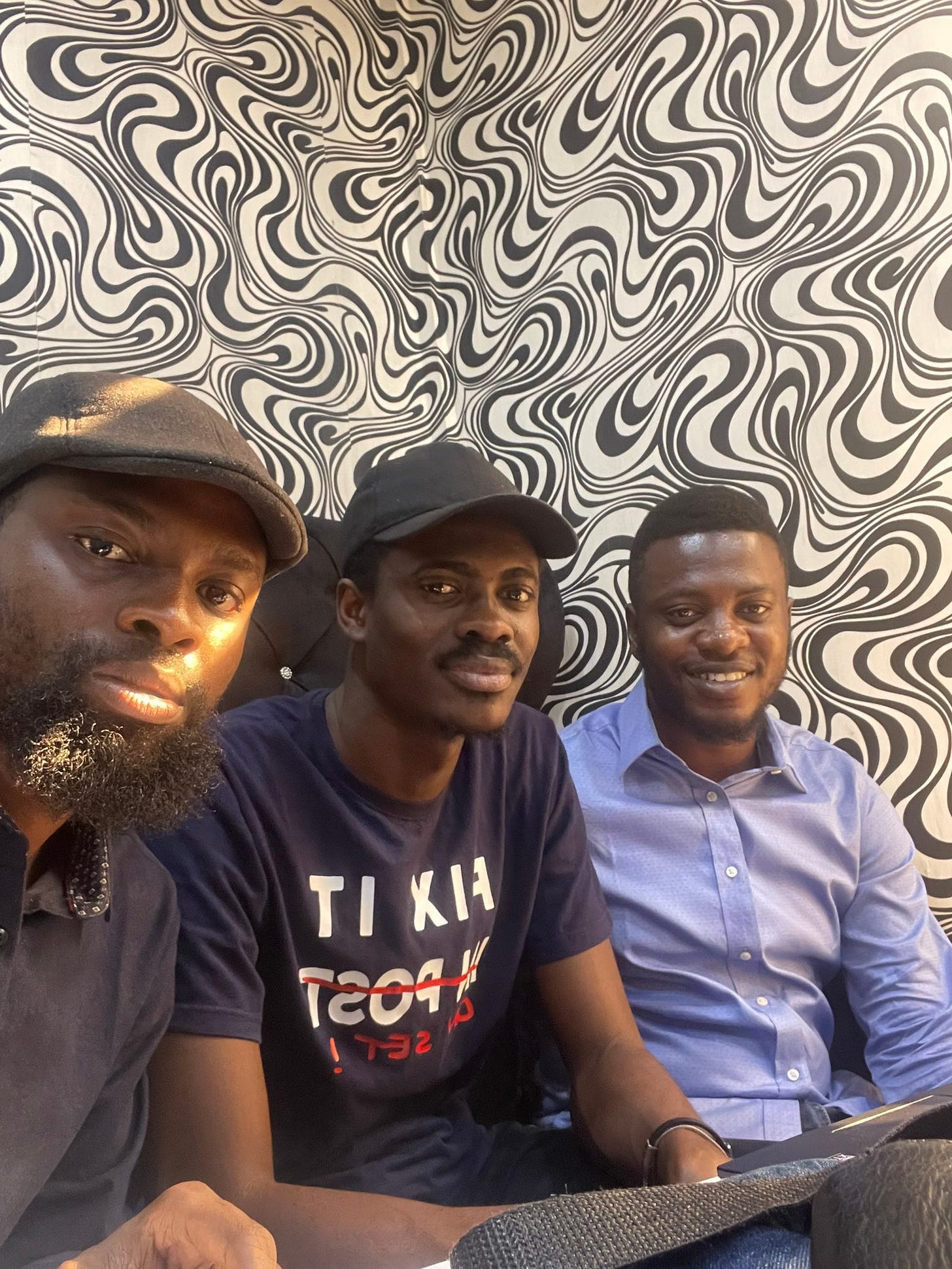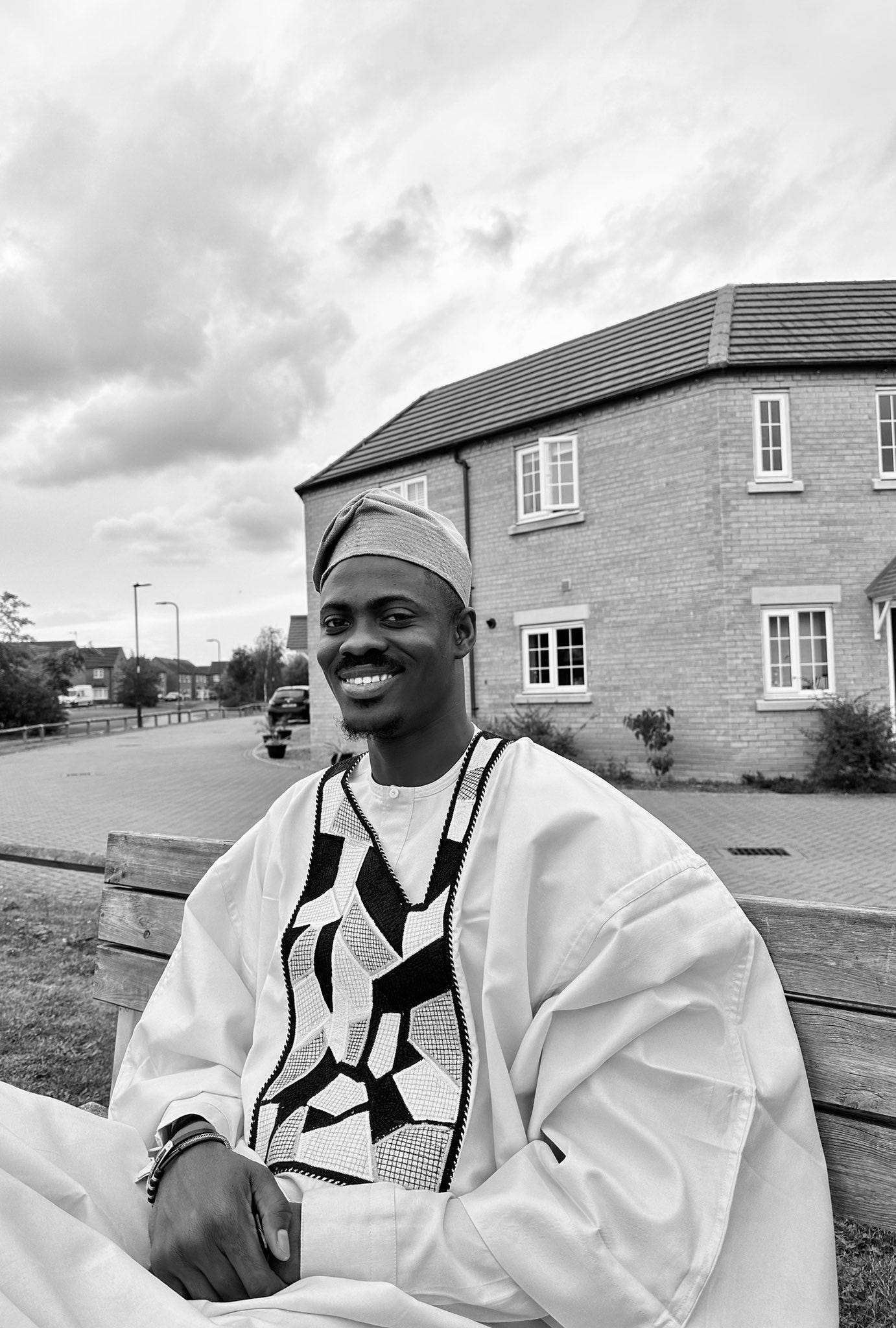“Film Editing Is Like Screenwriting” - Martini Akande
In today's edition of Nollywood BTS with Filmmakers Mart, we speak with actor turned film editor, Martini Akande, about being an editor in Nollywood.
During his university days, Martini Akande, who edited Jade Osiberu’s Gangs of Lagos and Brotherhood, was an actor.
“By 2015, I’d done a bit of acting all across the University of Ibadan, even headlined one or two plays,” he says to In Nollywood one Saturday morning. It was during this period he met Taiwo Egunjobi and Isaac Ayodeji, the two filmmakers who would shape his journey into Nollywood.
The trio would make short films for the fun of it, but also to hone their skill. While the other two wrote and directed, Akande produced and acted, but when it came to post-production, there was no one to edit. The few editors they’d reach out to either ruined their films or misplaced them.
One day, Akande, who was already editing event coverage to make money, thought he could do the editing himself.
“All this time, I thought film editing was rocket science,” he recalls. “But I was just like, let me start editing this thing myself now. That was how I started editing our short films.”
In this interview, Martini Akande talks about his journey into editing and some interesting bits he has picked along the way.
So how did you go from Taiwo and Isaac to Mainstream Nollywood?
Somebody was asked to edit a feature film, and he was not available. He then said, “Oh, I have this guy in Ibadan, who knows how to edit”. They were like, “Ibadan boy, oya bring am, make we see wetin e fit do”.
I got on the project in the middle of November and they didn’t have a rough cut. They only had a few edited scenes and wanted to premiere on December 12. So, I got the film out, and they were so impressed by the speed and the quality of work that I went on to work with them for the next three years. I did a Mnet series with them and about three feature films.
So I got into mainstream Nollywood by trying to rescue a project, and that opened doors to more projects.
What does an editor do in your own words?
Walter Murch calls it cutting out the bad parts in one of the chapters of his book, In The Blink of an Eye. I call it putting the best parts together because it's always hard for me to theorize it. I describe it rather than define it.
So there’s a bunch of footage in front of you for a scene, for instance, and you want to pick the best parts of this footage to make a coherent scene. This, to me, is what an editor does. You have to pick the best take for every line of dialogue; for every expression, for every reaction, you find the take where that actor did it the best. You use the best parts of your material to tell a story, I think that's what editing is.
Now, the way you explained it is technical and creative. How much of the editing is technical work?
I will say 80 per cent is creative, and 20 per cent is technical. Twenty per cent because that's just knowing how to use a software. We have at least five major film editing software, but you will never know which is used to edit a film. What matters is the end product.
Yes, you have to be quite technical and should understand your software. You also have to understand your footage, frame rates, codecs and all that stuff. You need to understand all that technical jargon, but most importantly, you need to know how to tell a story.
A lot of editing is like screenwriting — we call it the final rewrite. I read a few screenwriting books because it is screenwriting that will tell you what character motivation is and how you can show that in the edit. You don't want to give the audience too much or overload them, but you also don't want to starve them, so it's finding that balance.
It's a lot like writing and this is why I think it’s mostly creative. Another editor might say 70 per cent to 30 per cent but I don't think any good film editor will say it is 50 - 50. Everyone will always say it is more creative than technical.
If someone wants to become an editor in Nollywood, what are the foundational steps they can take?
I would say there's no formula to breaking into Nollywood as an editor, but one of the ways I think you can get taken more seriously or get one foot in the door is to have a CV, or have a portfolio.
It doesn't have to be strong. It doesn't have to be big films. Once the person who wants to give you the job is watching it, they can see if you know how to edit. And if you want to work in film, then try to get as much work as possible on films. Build your portfolio editing films!
Also, the industry is in different phases. There's the Iroko side of things, there's YouTube, there's the cinema, there's streaming. You know where you want to work and the level you want to work at, so start shooting your shots towards that side of things.
Nobody is going to give you a cinema film to edit if you've not done a few things before.
I saw a video, I think it was on Instagram where the person said a film is an editor's work. How much of this is true?
Editing is the reason why we watch films because editing kind of revolutionized filmmaking. The reason you can shoot somebody tying their shoelaces, brushing their teeth, wearing their shirt and the next thing you see them entering a car is editing. Editing made that possible.
I think what that person is trying to say is that editors are responsible for manipulating the audience to get a reaction from them. Editors are responsible for how the film makes the audience feel. Say you have a scene, and according to the writing and directing, this scene is meant to put the audience on the edge of their seat. How do you put [footage] together to generate this kind of emotion from the audience?
Look at Top Gun: Maverick, for instance, editing got all that reaction from the audience. The time when those warships just fly by, the sound, that's sound editing, but picture editing must have gone before the sound was edited.
Is the role of an editor lucrative?
By international standards, it is meant to be lucrative. You should be fine editing even if it is indie. I'm not even talking about the Eddie Hamilton’s (Top Gun: Maverick) or Joe Walkers’ (Dune). You should be fine with editing three to four indie films per year, to be honest.
But in Nollywood, it is better than it was. Trust me, it is better than it was. There's more investment now. Even for cinematographers, production designers and every other person in the value chain, it is becoming more lucrative. Of course, it is still not widespread, but you can make a living … I make a living out of editing films; like 90 per cent of what I do is film editing.
Lucrative is a very [tricky] word, though, when it comes to Nollywood. However, editors get more jobs than directors, even more than actors; of course, actors and directors get paid more, but in terms of job stability, editors still have it a bit more stable because there's actually a demand for good editors. So you can make a living out of it, but lucrative sounds like tech work. It's not cloud engineering or website development. You might never make that kind of money.
To end our interview, how do you cope as a Nigerian editor residing in the UK?
With everything Naira is doing [laughs]. For me, it's been about leveraging my relationships. I have clients that before they go to somebody else, [they look for me] because of what they built with me. You will notice a lot of Hollywood directors work with the same editor throughout their career, and that's because the director-editor relationship is that of trust. Once you find that person who gets what you are trying to communicate, you don't want to lose them.
I have this kind of relationship with some directors, and my new circumstances, like how much I'm going to charge, does not matter to them.
Also, I live in the UK for the most part, but I mean, I saw you in Nigeria last year. I will most likely still see you when I come this April. I am where the work is. Do you get? I am where the work is as long as you can afford it, if you rate me that much.
…
This series is jointly presented by Filmmakers Mart, the leading film logistics marketplace in Nollywood.





